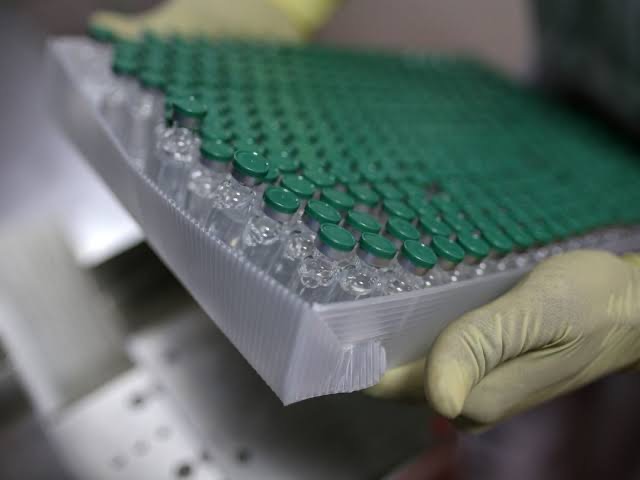The federal government yesterday disclosed that two million doses of the AstraZeneca COVID-19 vaccine have been reserved for the second dose in the first phase of vaccination.
It has also disclosed that soldiers will give vaccine shots to persons living in areas affected by insecurity.
The Executive Director of the National Primary Health Care Development Agency (NPHCDA), Dr. Faisal Shuaib, who made these known yesterday during a virtual briefing organised by the Africa Centres for Disease Control and Prevention (ACDC) on covid-19 response, noted that the vaccination with the second dose of the vaccine has started.
He urged persons who have received their first dose of the vaccine to ensure they check their vaccination cards to know when they are due for their second jab.
He said: “Vaccination is ongoing across all states. As of today 1,748,242 Nigerians have been vaccinated. This represents 86.9 percent of the number of Nigerians that have been targeted with the first those of the Oxford-AstraZeneca vaccine.
“Due to the current increasing uncertainty in global vaccine supply which is facing our continents and most of the world, Nigeria’s Presidential Steering Committee (PSC) made a strategic choice to utilise our current covid-19 supply to administer double dose rather than single doses. This will ensure that every Nigerian who receives a vaccine from our present supply, receives their second dose before the recommended time span between doses passes, which is between 6 to 12 weeks.
“Administering these two doses of the vaccine within the recommended time frame is very important to ensure full inoculation benefits.
“This means that with the current supply, we will fully inoculate roughly 2 million Nigerians rather than partially inoculate 4 million Nigerians. We are removing an element of risk that is becoming too high.
“We have already started administering second doses of the Oxford-AstraZeneca vaccine. In addition to health workers, frontline workers aged 18 years and above, and persons aged 50 years and above are being advised to visit any designated vaccination site to receive their vaccine doses whether the first or the second dose
“We are also advising that people who have received their first dose should check their vaccination cards for the date of the second dose, and ensure that they receive their second dose to gain full protection against covid-19.”
Shuaib added: “Concerning the number of doses that are left in Nigeria, what we did in Nigeria was to actually divide the four million doses into two compartments.
“Just about 2 million Nigerians have gotten their vaccines, which is about 90 percent. But with the second doses, we are now beginning to vaccinate those people who already have the first dose, and have gone at least 6 weeks since they had the first doses.
“Approximately, we have around 2 million doses that we plan to give exactly the same people that have taken their first doses, bearing in mind that we have to give an interval of six weeks to 12 weeks to make sure that we get the greatest response for these vaccines.”
On the issue of deploying soldiers to assist in vaccination, he said: “What we are doing in Nigeria is really learning from what was successful with the polio eradication programme. In 2020, Nigeria was declared wild poliovirus free.
“One of the reasons we had a delay in eradicating the virus was because of the Boko Haram insurgency and the insecurity in the North East.
“This made it difficult for health workers to access some settlements, and in some instances it was difficult to reach large communities.
“We learnt our lesson from the polio eradication programme. In our planning for these security compromised areas, we engaged the military just like we did with polio.
“With the polio eradication program, those areas that we could access, health workers and civilians were free to go and access the communities and ensure a comprehensive package of health services.
“We did not go there with just polio vaccines, we went there with additional health services such as providing malaria treatment and nutritional interventions.
“In those areas where due to insecurity, civilians and health workers will not go, we actually had military officers drop oral polio vaccines in the mouth of children in areas that are insecure. In the same vein, we have also mapped out strategies to make sure that the Military supports the vaccination of people in security compromised areas.”

